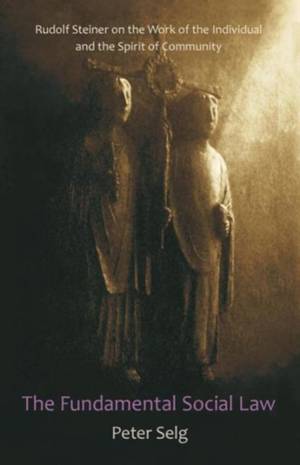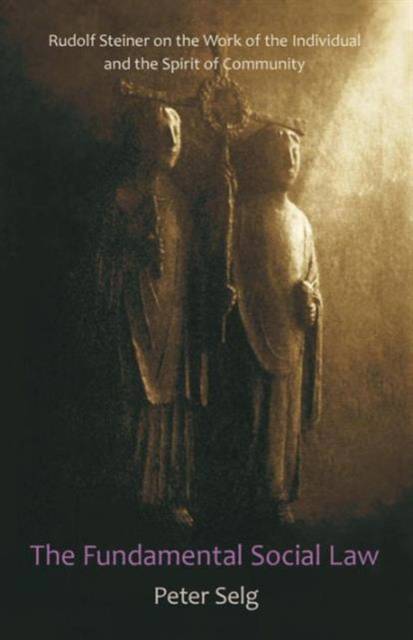
- Retrait gratuit dans votre magasin Club
- 7.000.000 titres dans notre catalogue
- Payer en toute sécurité
- Toujours un magasin près de chez vous
- Retrait gratuit dans votre magasin Club
- 7.000.0000 titres dans notre catalogue
- Payer en toute sécurité
- Toujours un magasin près de chez vous
The Fundamental Social Law
Rudolf Steiner on the Work of the Individual and the Spirit of Community
Peter SelgDescription
When in the mirror of each human being
The whole community finds its reflection
And when in the community
The virtue of each one is living.
Rudolf Steiner understood that human social, ethical, and moral development lagged far behind what had been achieved in knowledge, science, and technology; and that what human beings had achieved in these fields rested on what caused social and moral life to be untenable for so many, namely, the universal rule of egoism and self-interest.
In 1905, a historic year of political and economic crises, Rudolf Steiner formulated what he called the basic "social axiom" or "the cosmic law of work" The well-being of an entire group of individuals who work together is the greater, the less individuals claim the income resulting from their own accomplishments for themselves, that is, the more they contribute this income to their fellow workers and the more their own needs are met not through their own efforts but through the efforts of others.
Underlying this "fundamental social law" is the seminal realization that human social reality pivots on the question of work and compensation. Does one work for oneself, for one's salary? Or does one work for others, the community or larger society? For Rudolf Steiner, it was critical to understand that work should be a free deed. In other words, work and income should be completely separated.
In this profound work, Peter Selg traces how, at the end of the Great War, with Steiner's tireless efforts for the threefold movement, this fundamental social-spiritual insight moved into the center of his activities as an overriding practical and spiritual concern, rephrased as the "motto of social ethics," and deepened and filled with the full reality of Christ's teachings and life.
Anyone interested in a just, equitable, healthy, and spirit-based social future should read The Fundamental Social Law.
Spécifications
Parties prenantes
- Auteur(s) :
- Traducteur(s):
- Editeur:
Contenu
- Nombre de pages :
- 136
- Langue:
- Anglais
Caractéristiques
- EAN:
- 9780880106542
- Date de parution :
- 20-09-11
- Format:
- Livre broché
- Format numérique:
- Trade paperback (VS)
- Dimensions :
- 140 mm x 216 mm
- Poids :
- 181 g

Les avis
Nous publions uniquement les avis qui respectent les conditions requises. Consultez nos conditions pour les avis.






